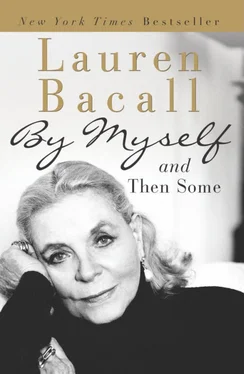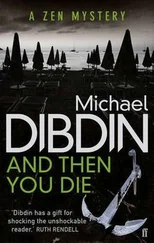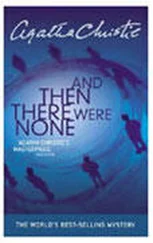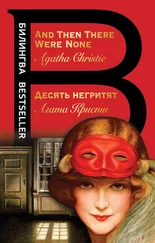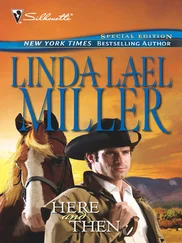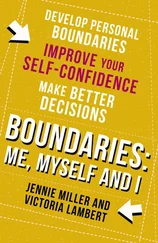The Tony Award show was some night. My dressing room in the Palace was afloat with friends coming in for a drink. Then to my seat in the audience for the early awards. God, I was nervous. Cecil Beaton won the costume award for Coco . We didn’t win anything until Ron’s name was announced – first for choreography, then for direction. I screamed – we all did – my voice was totally shot. And I still had my number to do.
Then Walter Matthau – another irony – announcing best performance by an actress in a musical. The names of the nominees – my heart thumping, then stopping altogether. Opening of the envelope. And I heard it – ‘Lauren Bacall for Applause.’ I screamed again, jumped out of my seat toward the stage. My friends in the audience were on their feet stamping. I could only make foghorn noises of shock. I’d never won anything before – some actresses did, not this one. I finally gathered myself together enough to thank Ron and the company of Applause and the authors for the biggest, best love-in of my life. By the time I was to wind up the show with ‘Welcome to the Theatre’ (from Applause , of course) I had almost no voice. It was an unforgettable night for me. Totally rewarding. It left me exhausted – and happy.
From the age of nineteen I had been made aware of the pitfalls of awards. And, as my career moved on its zigzag course, I never contemplated winning one. I still don’t think actors, directors – any creative artists – should be pitted against one another. There is the high in winning, the low in losing – and the human frailty of resentment that the loser feels toward the winner. That uses up energy where it should not be used, energy that is needed. For the real stakes in the theatre are high – they are life stakes. That’s what I love about it. You gamble with your life, and that’s a gamble worth taking.
Still thinking back to that Tony night: I was a winner, but I was alone, and that was a glaring fact of life to me. Crazy to look at it that way? Of course I’m crazy – but alone is definitely alone. Work is essential to me – really using myself, really functioning, body and mind at their best – but it only heightens my emotional needs, it doesn’t lessen them.
The night after the Tonys, the show went fantastically. The audience knew I had won, and the opening scene itself was all about the Tony Awards, so the applause on my entrance had two meanings. That communication between actor and audience is incredible fun – the lift it gives is indescribable – but again, it basically deals with emotions, with people. And there’s nothing like it. It’s love. But it ends when the curtain comes down. I remember that after Johnny Negulesco saw the show he said, ‘You can never have a high like this anywhere else – you don’t need a man, there isn’t a man alive who could ever make you feel the way that audience makes you feel.’
Wrong!
There is a man alive, I’m sure, who might make me feel that way. The only question is whether or not I will find him.
Nonetheless, from a work point of view, Applause continued to be the most rewarding experience of my life. I just wanted to have everything.
There came the devastating night of Friday, July 31. At the beginning of the disco number, as I raised my right leg for a high kick, my left leg buckled – a rip-like thunder to me. The kids thought I had slipped, then realized it was something else and caught me before I hit the stage. I knew something terrible had happened, but kept on going in the show, God knows how. I was filled with terror. The leg buckled another couple of times, without warning. The doctor was waiting for me in my dressing room at the interval. My knee started to puff. I started to cry. All I could think was that my brief moment of glory was over – I might be incapacitated for weeks. Len came into the room, helped put make-up on the white tape that was holding the hated Ace bandage in place. One of the young doctors told me to call Dr James Nicholas’ office on Monday so that he could examine my knee and prescribe my future course of action. That was to be the beginning of one of my luckiest medical associations.
I missed no performances, but we eliminated the disco scene until we could hear Dr Nicholas’ diagnosis – which was that I had torn the other cartilage in that knee. Treatment was prescribed. The doctor impressed on me the necessity of keeping the muscles around the knee strong – only possible by working with weights. The disco would have to be dropped from the show for three weeks, and I’d have to wear the bandage until the swelling went away. Later I discovered that Dr Nicholas was Joe Namath’s doctor, as well as doctor for dozens of other athletes who had a knee, elbow, or foot problem. And they were followed by Nureyev, Baryshnikov…. Dr Nicholas kept me from surgery and from missing a performance, and I could never be grateful enough. I’ve been lucky so far – got through almost five years of Applause and a few after without a major mishap. No more taking my body – or luck! – for granted.
The first time the disco went back in the show I was very nervous. Had to think of that knee constantly, figure out where to put my weight, how to favor the right leg, without the audience being aware. I worked with weights before my daily body warm-up and I go on doing it to this very day.
One night at the interval I was told that Bette Davis was in the audience. That she had said she would come on two conditions: (1) that she did not sit up front, and (2) that there would be no pictures. I almost died. God – the creator of Margo Channing in All About Eve , the definitive performance. My childhood idol was in the audience watching me play her part.
I had never known her well at Warner Bros. – had only seen her a few times there. I was apprehensive about meeting her afterward – about how she would feel, what she would think of the show, of me. I opened my dressing-room door in answer to her knock and there she was – my dream, my fantasy actress. Every part she had ever played – and I loved her in all of them – flashed before me.
I offered her a drink, which she declined – she had to get back to her daughter in Connecticut. She sat on a chair, not on the love seat, which might have indicated she would stay awhile. I stammered something about how ridiculous it was for me to be playing her part. She said, ‘Funny – I’d never thought of this as a musical.’ She was reserved, polite – rather closed. And I was uncomfortable. My admiration couldn’t be lessened – I was just personally uncomfortable with her. After a few more exchanges she rose to leave. Her last words were, ‘No one but you could have played this part – and you know I mean that.’ I thanked her and she left. There was so much more I had wanted to say to her, but I was too self-conscious, and her reserve kept her in check. If we’d had fifteen minutes, it might have been warmer, I might have made her realize how much her being there had meant. That woman who was the biggest woman star in motion pictures in the Thirties and Forties, Garbo notwithstanding, actually took an ad in the Hollywood trade papers saying she was looking for a job – was ready, willing, and able. That that should happen is the horror of this business.
And now she is being appreciated as she should be – saluted by her peers, her contribution to film recognized as unique. That’s part of the glory of this business.
So the months went by, the Palace Theatre filled to capacity at every performance, well-known people from all walks of life coming backstage unexpectedly. It was always rewarding, always gave me a lift. One of the most unforgettable nights that I still think about, and will always, was about six weeks after opening night. Noel Coward brought the Lunts. They stayed in the dressing room – I wouldn’t let them out. Len sitting at Lynn Fontanne’s feet – me hanging on to Alfred Lunt’s every syllable – Noel enjoying it all. Three people whose contributions had been immeasurable and everlasting. One night Paul Lukas came aged, white-haired, still good to look at. My mentor of thirty years earlier. He was proud of me, he said. ‘So you finally have done what you set out to do.’ Sitting in my dressing room, I could picture vividly the reverse scene at the Martin Beck Theatre – all our conversations. I had forgotten nothing. And it was a good feeling, to remember.
Читать дальше
